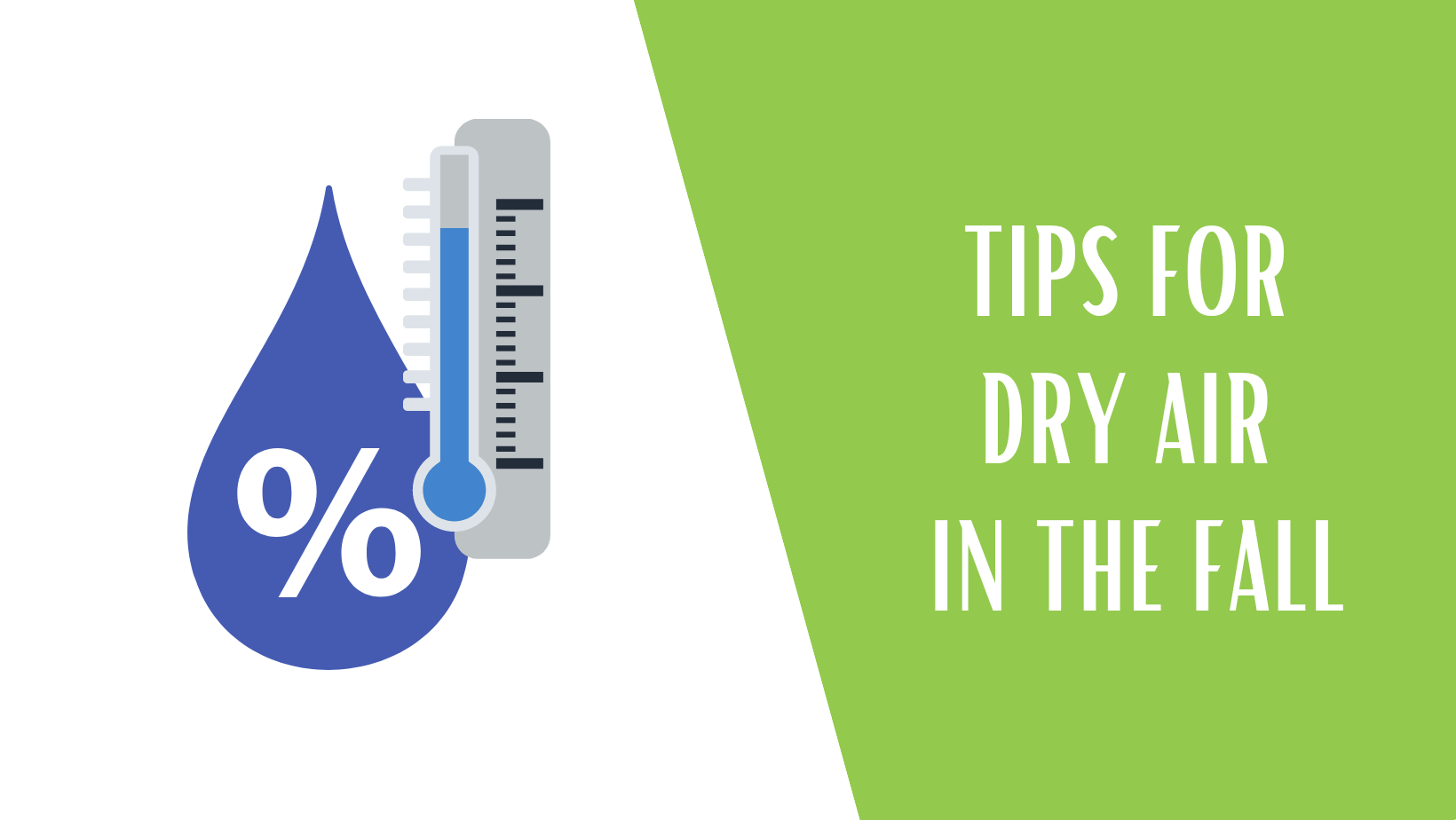Ahh...Fall has arrived and we finally get a break from the humid Summer heat. Sounds nice, right? Unfortunately, cooler weather comes with its own drawbacks, including lower humidity/dry air.
Relative Humidity in the Fall and Winter
Humidity is the amount of water vapor in the air; relative humidity is the amount of water vapor in a water-air mixture compared to the maximum amount possible. For example, if relative humidity is 20 percent, the air contains 20 percent of the water vapor that it could potentially hold at that temperature. If you increase the temperature, however, the amount of water vapor that the air can hold increases, so the relative humidity decreases.
What does that mean for colder weather? In the fall and winter, humidity naturally drops with cooler temperatures. And as temperatures decrease, we start to crank up our heating systems. Like we said, warmer air can hold more water, which will decrease the the relative humidity even further and make the air feel drier.
How Dry Air Affects You and Your Home
Dry air can irritate your body
Dry air can negatively affect your health and can also cause damage to your home. When relative humidity inside your home is too low, you may experience issues such as sore throat, skin irritation, bloody nose, or dry eyes. Our bodies need moisture to stay healthy and without it, we can experience unwanted symptoms and even get sick.
Dry air increases the likelihood that you'll get sick
Speaking of getting sick, dry air can increase your chances of catching viruses. Research indicates that virus particles suspended in the air die more rapidly when the relative humidity is higher. On the contrary, lower humidity aids airborne transmission of water droplets and aerosols. When we cough or sneeze, for example, small water particles containing living viruses disperse into the air. In dry air environments, these droplets will stay afloat longer, increasing the chance that they enter your body. Pair this with the fact that your immune system defenses can decrease in low humidity environments, and you have the perfect combination to get sick.
Dry air causes you to spend more money on heat
Air without the right level of moisture in it can’t retain heat well, which is why the air in your home feels so cold when the heat is off. To counter this cold feeling, you increase the heat in your home. However, since warm air dries our the air even further, you may feel more cold. This creates a never ending cycle of turning up the heat and spending more on energy bills.
Dry air messes with paint and wood
Floors, tables, chairs, and anything else made of wood needs a certain level of moisture to maintain its integrity. When the air in your home is too dry, it will take moisture from wherever it can find it, including wood. As a result, the wood can splinter, shrink, and crack. Paint and wallpaper can dry out a well, leading to chips or peels on the walls. Finally, dry air creates the perfect atmosphere for static electricity, and no one likes that little shock every time you reach for the door handle.
How to Combat Dry Air in the Fall and Winter
Ideal home humidity levels should fall between 30 and 50 percent. The best way to maintain enough moisture in the air during the colder seasons is to use a humidifier.
While portable humidifiers are helpful, a whole-home furnace humidifier will work best to ensure consistent comfort and air quality.

An AprilAire whole-home humidifier, for example, will provide humidity control and reduce the transmission of airborne viruses. Not only will your chances of getting sick decrease, but pesky symptoms like dry skin and a sore throat will also be relieved. Additionally, a humidifier will help you save energy and money, as they make your home feel warmer by adding moisture back into the air. This breaks that never ending cycle of dry, cold air and allows you to turn the thermostat down. Make sure not to over-humidify your home, though, as high humidity levels can promote promote mold growth.
Other simple ways to increase humidity in your home include leaving the door open when you shower, cooking on the stove, letting clothes air dry, and getting some houseplants.
All of these tips will help battle low humidity in your house to keep you warm, comfortable, and healthy throughout the fall and winter months.
If you live in the Delaware Valley/Greater Philadelphia area and would like to find comfort within your home, visit our website or give us a call at 215 - 245 - 3200 to learn more.




